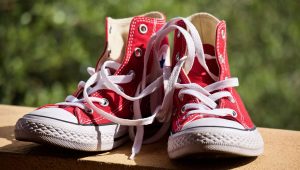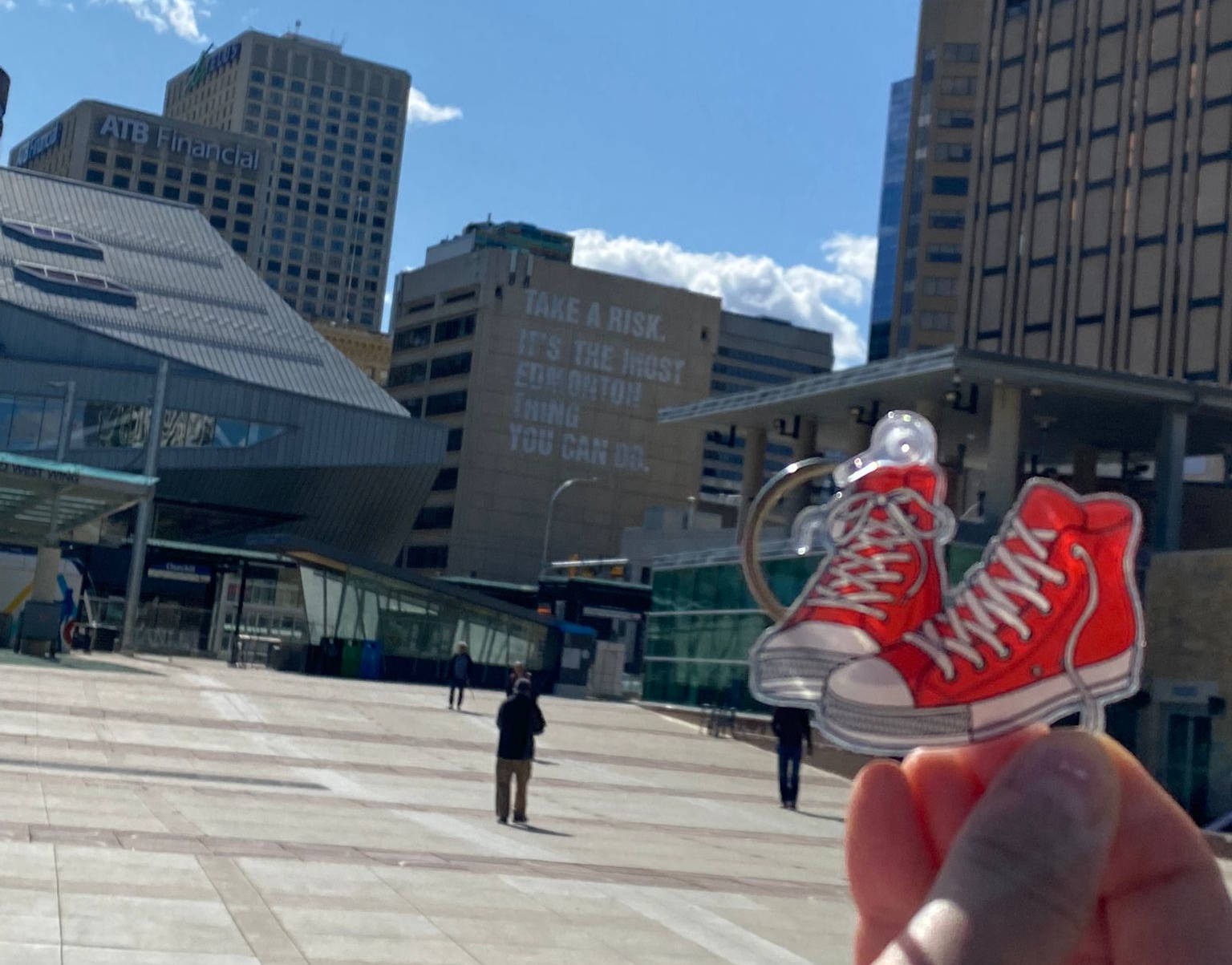Ten years ago, RJ Formanek wanted to start a conversation about Fetal Alcohol Spectrum Disorder (FASD). As an adult who has FASD, he thought educating people and showcasing his diverse skillset and reliance was important. And the Red Shoe Walk was born.
RJ figured he should stand out – red shoes did the trick. With his crimson kicks, RJ took to the street, stopping to talk with anyone willing to learn about FASD. And no wonder he wanted to start a conversation about FASD – especially when it feels like no one is talking about FASD.
This year, our Red Shoe Day Event sees us walking from Hope Terrace, our supportive living apartment for folks with FASD, through the King Edward Park community, and all through Bonnie Doon and into Strathcona and then returning to have lunch and an art sale at the Shamrock Curling Club. The art sale will feature artists who have FASD. Register today to join us on September 9 from 10:30 a.m. to 2:00 p.m. for a Red Shoe Walk through the community and bring awareness to a disorder that needs to be talked about more.
4% of Canada’s population has FASD
There are more people in Canada who have FASD than autism, cerebral palsy, and Down syndrome combined. And no two people who have FASD are alike. Many people who have FASD have rewarding careers and fulfilling lives – they uncover their strengths and lean on them to find success.
FASD affects people differently depending on when alcohol was introduced to their fetal development. Alcohol slows down development, both physically and mentally. This means how FASD affects a person is highly individualized, often requiring individualized programs and supports to help them live with dignity.
FASD is a hidden disability as most people who have FASD have no physical signs of impairments. Adolescents and adults who have FASD can experience high rates of difficulties in daily living and adverse outcomes, including school disruption, mental health issues, and challenges with independence. This is why the Red Shoe Walk is so important.

There is shame in an FASD diagnosis
Often, people miss or never receive an FASD diagnosis because of the shame involved – not on the people who have FASD, but on those who carried them in utero. There are ad campaigns and information packages all over highlighting the risks of drinking alcohol while pregnant.
A person may consume alcohol while pregnant without ever knowing they’re affecting the fetus they carry. They may not know they’re pregnant, have been told a little alcohol doesn’t hurt, come from a community where that information isn’t available, are experiencing mental health or stress-related illnesses prompting them to drink, or for many other reasons that have nothing to do with other issues like poverty. With a better understanding of how a person can end up consuming alcohol while pregnant, we can better understand FASD.
FASD can affect anyone – not only people in poverty
A common misconception around FASD is it only affects people experiencing poverty – we know this is false. People who have FASD can come from a range of backgrounds and situations, sometimes even from affluent families. We’ve seen this firsthand at Bissell Centre with participants in different programs telling us their stories and experiences.
Where the issue around poverty gets cloudy is how people who have FASD can be more likely to experience houselessness. That difference in understanding and mental processing can make navigating systems that we take for granted more difficult. We designed our programs specifically with this in mind – ensuring that services for folks who have FASD are readily available no matter the individuals’ personal circumstances.
Helping people live with dignity
Our Fetal Alcohol Spectrum of Services (FASS) program works to understand individuals who have FASD as whole people. We work one-on-one with our program participants to identify their unique strengths to guide them toward personal fulfillment.
Part of our FASS program is Hope Terrace. This is a supportive housing building specifically designed for people who have FASD. Wraparound services for FASD are included in this building, which also features a Snoezelen room to help individuals with emotional regulation.
Recently, a group from our FASS program contributed to the book Born Broken, detailing what our participants found most important to them in their own voices. This book highlights what folks who have FASD have to offer the world, their fears and struggles, and how they’re moving forward.
Maybe no one is talking about FASD simply because they don’t understand it. On September 9, keep an eye out for some folks walking all in Red Shoes. Ask questions about FASD and the Red Shoe Walk to ensure we are all talking about FASD.


